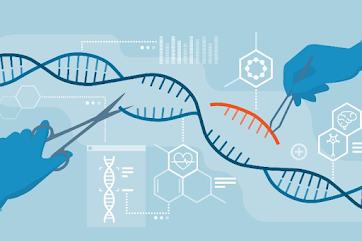Genetic engineering, also known as genetic modification or genetic manipulation, is a powerful biotechnological tool that involves the alteration of an organism's genetic material to introduce desirable traits or characteristics. This process enables scientists to modify organisms at the molecular level, leading to the production of genetically modified organisms (GMOs) with novel traits or improved functionalities. Here's a comprehensive overview of genetic engineering:
Introduction to Genetic Engineering:
- Genetic engineering encompasses a variety of techniques used to manipulate genes, including recombinant DNA technology, gene editing, and synthetic biology.
- The ability to modify genetic material has revolutionized many fields, including agriculture, medicine, pharmaceuticals, and biotechnology.
Key Techniques in Genetic Engineering:
- Recombinant DNA Technology: Recombinant DNA technology involves the insertion of foreign DNA into an organism's genome, resulting in the expression of new traits. This technique is used to produce genetically modified crops, develop recombinant proteins, and create transgenic animals.
- Gene Editing: Gene editing techniques, such as CRISPR-Cas9, allow precise modification of DNA sequences within an organism's genome. CRISPR-Cas9 has emerged as a powerful tool for targeted gene knockout, gene insertion, and gene regulation in various organisms.
- Synthetic Biology: Synthetic biology combines principles of engineering and biology to design and construct artificial genetic circuits and biological systems with desired functions. This approach enables the creation of novel organisms with customized traits and capabilities.
Applications of Genetic Engineering:
- Agriculture: Genetic engineering has revolutionized agriculture by creating crops with improved traits such as pest resistance, herbicide tolerance, drought tolerance, and enhanced nutritional content. Examples include Bt cotton, herbicide-resistant soybeans, and Golden Rice fortified with vitamin A.
- Medicine: In medicine, genetic engineering is used to produce therapeutic proteins, develop gene therapies for genetic disorders, and engineer cells for regenerative medicine applications. For example, insulin production using genetically modified bacteria and CRISPR-based gene editing for treating genetic diseases.
- Pharmaceuticals: Genetic engineering is employed in the production of pharmaceuticals, including vaccines, antibodies, and recombinant proteins. Genetically modified organisms, such as bacteria, yeast, and mammalian cells, serve as efficient production platforms for biopharmaceuticals.
- Environmental Remediation: Genetic engineering holds promise for environmental applications, including bioremediation of pollutants, biofuel production from renewable sources, and carbon sequestration by engineered microorganisms.
Ethical and Societal Considerations:
- Genetic engineering raises ethical concerns regarding safety, environmental impact, biodiversity, and socioeconomic implications. Critics argue about the potential risks associated with GMOs, including unintended ecological consequences, genetic contamination, and monopolization of seed markets.
- Regulatory frameworks vary globally, with some countries imposing strict regulations on the cultivation and commercialization of GMOs, while others have more permissive policies.
- Public awareness, engagement, and education are crucial for informed decision-making and responsible governance of genetic engineering technologies.
Future Directions and Challenges:
- Advancements in genetic engineering continue to expand the possibilities for creating novel organisms with tailored traits and functionalities.
- Challenges include improving the efficiency and specificity of gene editing techniques, addressing concerns about biosafety and biosecurity, and ensuring equitable access to genetic engineering technologies.
- Emerging areas of research include genome-scale engineering, multi-gene editing, gene drives for pest control, and synthetic biology applications in biomanufacturing and biocomputing.



No comments:
Post a Comment